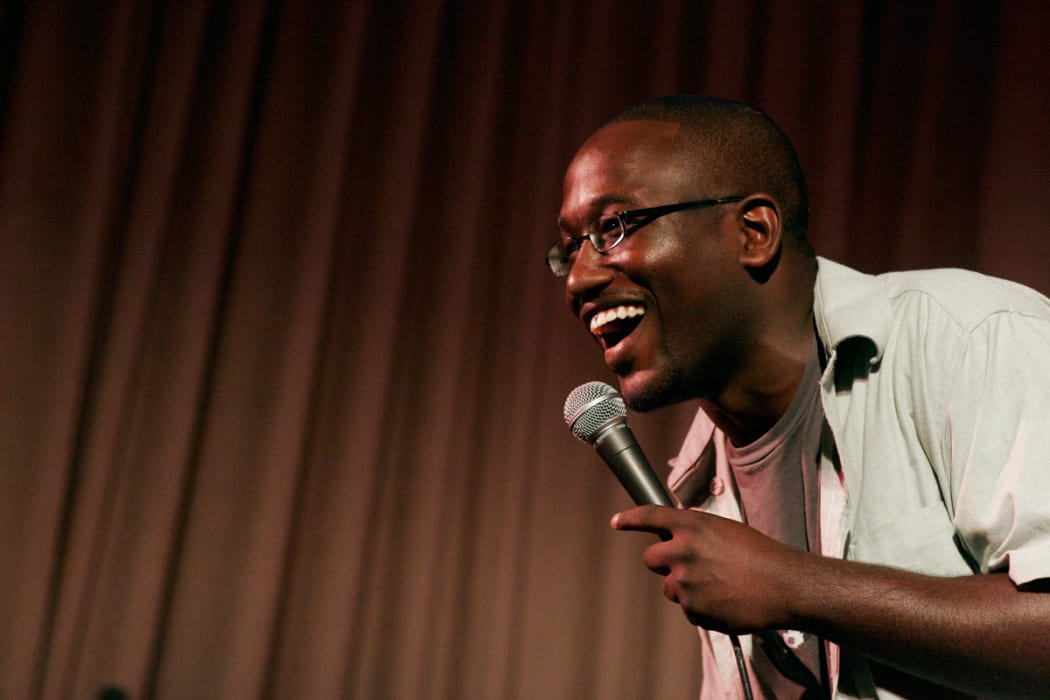Our weekly recap highlighting the best feature stories from around the internet.

Hannibal Buress. Photo: Unknown
On The Road With Hannibal Buress, Comedy's Most Respected Slacker – by Hua Hsu, The Fader
“He's been an underground favorite for years, the type of guy you would see around town at bars or concerts or hosting his D.I.Y. comedy showcase a few miles away at the Knitting Factory. Now, legends like Chris Rock and Louis C.K. tip him as the future of comedy. As Hannibal strolled across that vast, fabled stage in Brooklyn, it felt like an intermediary moment before the next level of fame, when he's starring in his own movies and playing arenas.”
Mainstream Rap's Gay Future Is Upon Us – by Jordan Sargent, Gawker
“Visually speaking, Young Thug, and to a lesser extent ILoveMakonnen, are upturning rap music, but they're also following a path charted by artists—Andre 3000, Kanye West, Lil Wayne—before them. Those rappers rejected masculinity in their own ways—through style, too, or in the case of Wayne, by rapping proudly about a photo of him kissing Birdman—in the process moving rap, socially, to where it is now.”
Complainants fare poorly in alleged sex-assault cases – by Dana Johannsen, NZ Herald
“The fact that most people's sympathies immediately rest with the alleged perpetrator of sexual assault rather than the complainant says something terrible about us as a society. Until the facts of the case are known it is important not to draw any conclusions and [Mils] Muliaina, like anyone else, deserves the right not to be judged until the investigation and judicial process has run its course. The same courtesy should also be extended to the alleged victim.”
Mornings Will Never Be the Same: Analysing The Paul Henry Show Premiere – by Alex Casey and Duncan Greive, The Spinoff
“I’ll admit it. I laughed quite a few times during the three-hour broadcast, and not just because it was a Nutella-soaked 6am and I was hysterically questioning my life choices. As hated as Paul Henry is, and as much as I dislike him, he is so goddamn watchable. He has the twitchy attention span and face of a humungous chipmunk in a suit. Who wouldn’t want to watch that?”
An anatomy of a journalistic failure - by Sheila Coronel, Steve Coll and Derek Kravitz, Rolling Stone/Columbia University
“As we asked ourselves how we could have gotten [‘A Rape on Campus’] wrong, we decided the only responsible and credible thing to do was to ask someone from outside the magazine to investigate any lapses in reporting, editing and fact-checking behind the story. We reached out to Steve Coll, dean of the Columbia School of Journalism, and a Pulitzer Prize-winning reporter himself, who accepted our offer. We agreed that we would cooperate fully, that he and his team could take as much time as they needed and write whatever they wanted. They would receive no payment, and we promised to publish their report in full.
In Defense of Fangirls - by Sandra Song, Pitchfork
“’Fangirl’ is an idea that has been compounded with the idea of irrational, silly and hysteric excitement, which is reductive at least and misogynistic at worst. It makes it all too easy for people to dismiss women as false enthusiasts with no real critical perspective or stake in the music itself, despite that women are the #1 purchasers and consumers of music.”
Unfreed: The man who was accidentally released from prison 88 years early – by Robert Kolker, The Marshall Project
“Lima-Marin’s life, after all, has comprised a series of reversals, each of them drastic: from a life sentence to freedom; from ex-convict to faithful father; from selfishness to religious fervor. And now, every inch of progress has been ripped away. There has to be a reason.”
How To Be Alone: Musicians Confront Solitude – by Ann Powers, NPR
“For a writer like [Sufjan] Stevens, who usually stresses patterns and mythologies within his work, the turn toward autobiography is risky. It opens the door to fetishization, something Stevens already has to deal with because of his good looks and invitingly gentle performance style. In the era of pop music, many artists people mention as embodying solitude have very noisy personal narratives indeed — they are troubled figures like Nick Drake or Elliott Smith, both possible suicides, or ones who consciously cultivated singular paths parallel to their natural communities, like Miles Davis, Joni Mitchell and Leonard Cohen.”
Did you read something we didn't? Tell us about it in the comments section.

